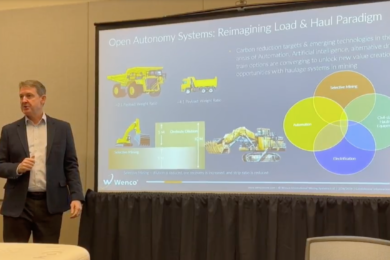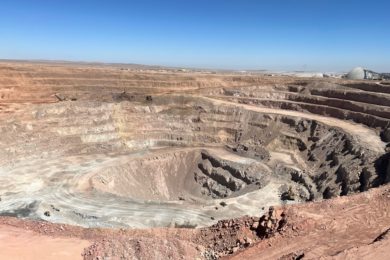Applying continuous ion filtration (CIFTM) in the mining industry will bring significant benefits, and Multotec is poised to do this following its recent announcement that the company will be launching water processing solutions in Africa in partnership with Australian company CleanTeQ. Multotec will be the African representative for the CleanTeQ range of ionic filtration systems, and a phased rollout of the systems is planned during 2014.
“This is a significant coup for Multotec and the team is excited about the prospects for the treatment of mine wastewater and acid mine drainage (AMD). By applying the CIF technology to the mining industry, we will be able to contribute to the drive to preserve our valuable water resources,” says CJ Liebenberg, Environmental Process Engineer at Multotec.
While CIF is based on ion exchange (IX), a technology that has been on the market for over 50 years, it also resembles continuous sand filtration with the salient differences being that CIF uses charged IX resin beads instead of sand as its filtration medium, and it “filters” dissolved solids out of solution in addition to suspended solids. This feature of CIF distinguishes it from its competitors in the conventional IX market as it allows for the elimination of a pre-treatment stage to remove solids.
Each CIF module comprises a series of columns each designed for a specific function – ionic filtration, resin washing (pre-elution wash), resin regeneration and resin rinsing (post-elution wash). Resin moves as a packed bed in the columns with resin continuously being transferred from the bottom of each stage to the next. Counter-current operation ensures optimum mass transfer and continual high contaminant removal.
Liebenberg explains that the CIF technology complements the other products and services in Multotec’s portfolio. “Multotec’s core business is the supply of products and services to the mining and mineral beneficiation industries including solid/liquid separation equipment such as centrifuges and filter presses. Our aim is to assist in the alleviation of water shortage issues and to encourage sustainable development in South Africa. Mining is often regarded as being a non-sustainable enterprise from an environmental perspective and we would therefore like to become part of the solution, rather than the perceived problem.”
He continues that treatment of mine water and AMD with containerised systems is considered to be niche markets for CIF.
The CIF process is similar, in some respects, to the Gyp-CIX process that was considered by the International Network for Acid Prevention (INAP) for the treatment of AMD. CIF differs in a few respects. These include that lower flow rate requirements in CIF allows for a much smaller clarifier than would be required in Gyp-CIX. This attribute is the result of regeneration columns being continuously agitated, eliminating the need for a high flow rate to keep resin and formed gypsum in suspension. Flow rate, in turn, impacts on the power requirements of the process with CIF requiring less power due to its lower flow rate requirements. These factors result in lower operating and capital requirements than Gyp-CIX.
Liebenberg points out that CIF technology has had significant success in the treatment of coal seam gas (CSG) associated water in Australia. There are indications that such activities might take place in southern Africa in the near future, and this will therefore be a significant market for CIF.
Although the cost of a CIF system is application-specific, it tends to be superior to other technologies on the market, especially reverse osmosis, both with respect to capex and opex. In fact, depending on the CIF product selected – CIF single stage, DeSALx or HiROx – it can be up to 50% more cost effective than conventional technologies. This is primarily due to its simplicity, use of low-cost regeneration chemicals and low power requirements. Zero to minimal pre-treatment is generally required, especially because the system can operate in the presence of up to 40% solids by weight.
Additional to the benefits of CIF mentioned previously are that water recoveries exceeding 95% are achievable. The fact that it is fully automated enables the system to operate independently and to be controlled remotely. Due to its simplicity it is easily operated and maintained eliminating the need for highly skilled labour. Access to remote locations is allowed for as the containerised systems are mobile. Finally, potentially valuable by-products like gypsum can be produced in a saleable form using CIF.









